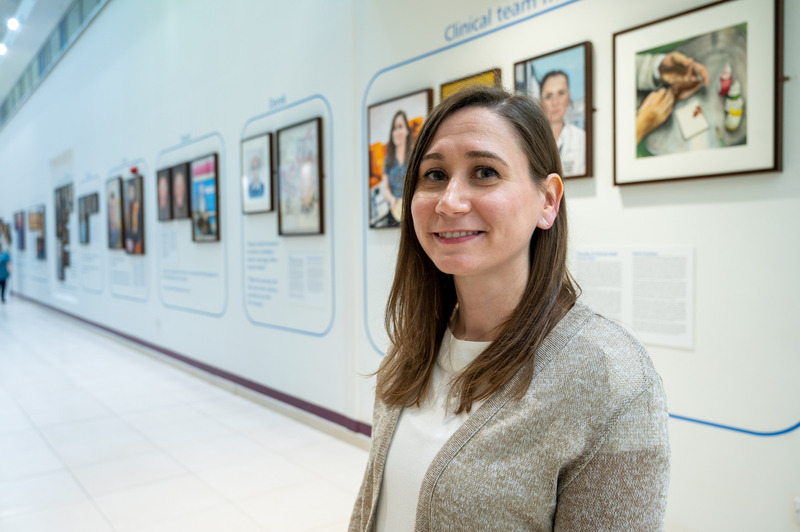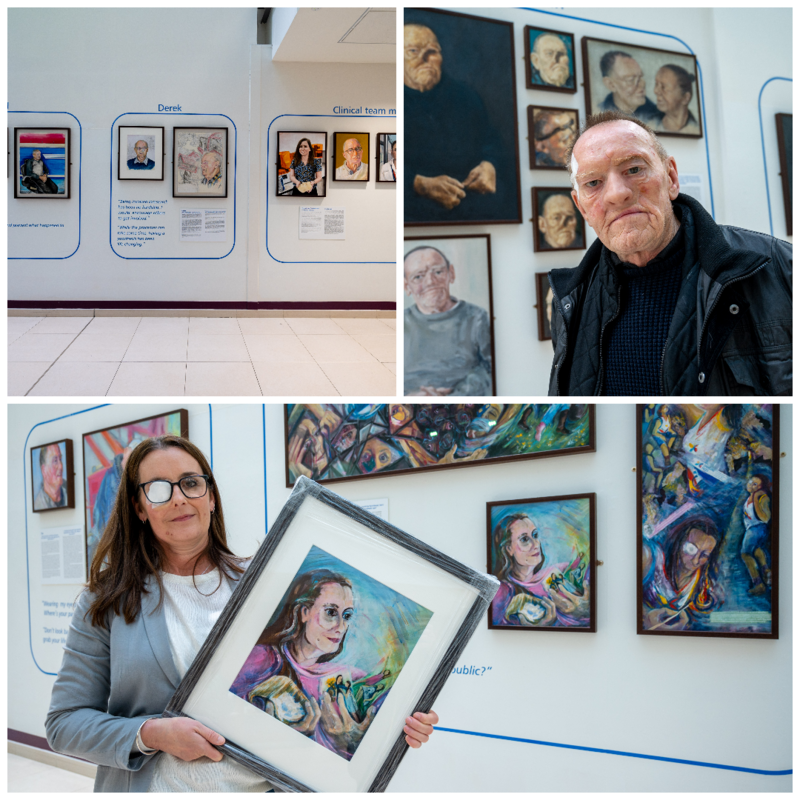
Fifteen patients, who wear facial prostheses – bespoke removable silicone devices that replace a facial part such as an eye or nose – took part in the Leeds CRF IMPRESSeD study, comparing modern and conventional methods of producing the prostheses in an early look at which technique was preferred by patients and potentially more cost-effective. The study was funded by the National Institute for Health and Care Research (NIHR) and Leeds Hospitals Charity.
The portraits were painted as part of a public engagement project, named “I’m Still Me”, which was inspired by the research and co-created by the patients, researchers, healthcare professionals, artists, and public engagement practitioners. They will be exhibited in the Atrium of the Bexley Wing at St James Hospital, Leeds, from 6 November 2024 to 31 January 2025. The public engagement project was funded by Research England’s Enhancing Research Culture funding stream with additional support provided by a University of Leeds Engagement Fellowship.
The IMPRESSeD study was led by Dr Rachael Jablonski, current NIHR Academic Clinical Lecturer and Specialty Registrar in Restorative Dentistry at the Leeds School of Dentistry and Leeds Dental Institute, as part of her PhD.

She said: “Head and neck cancer can have a major impact on a patient’s health and wellbeing and receiving a prosthesis can be an important part of the process of coming to terms with the experience.
“I worked with patient and public involvement (PPI) contributors to identify areas for improvement in the processes of making prostheses. Fifteen patients took part in the feasibility trial and were invited to take part in an interview after they had gone through both conventional and new methods. Almost all the patients who took part in the interviews preferred the newer processes of making facial prostheses in our initial study. The next step would be a future full-scale trial.”
I’m Still Me was created as a collaborative arts-science project to share the lived experience of people who wear facial prostheses, bring the research findings out into the wider community, and highlight the valuable role of patients in research and public engagement.
The portraits were created by a group of painters assembled by Salford artist Sarah Morley following her work on a similar, previous project. Together with writers and researchers, the artists worked with the patients to co-design the I’m Still Me exhibition. The portraits are each displayed alongside a narrative describing the patient’s rehabilitation with facial prostheses, to raise awareness of the innovative science, and to raise public awareness about face equality.
Dr Jablonski said: “Research is typically not very accessible to the general public. We knew that when we shared the research, we wanted to make the findings as accessible as possible. There has also traditionally been an underrepresentation of people with visible differences in public life and the media. It was therefore important that the project not only shared our research findings but also communicated key issues that were most important to the patient contributors.
“We hope that I’m Still Me shares messages of face equality and stimulates a reflection on how people should be valued through their own unique stories and contributions.”

Here are some of the quotes from patients that took part in the study:
Patients’ quotes
Suzie
“This is what I am, and this is what I look like.”
“Stick with it. Things get better.”
Robin
“Cancer has many faces – this is mine.”
“Prostheses act as a shield for the public who might be upset if they found out what we really looked like – they provide a level of public acceptability.”
Tim
“Wearing my eye patch I get comments, especially from children, like, “Where’s your parrot?
“Don’t look back. Look forward and grab life. Whether it’s long or short, grab your life and run with it.”